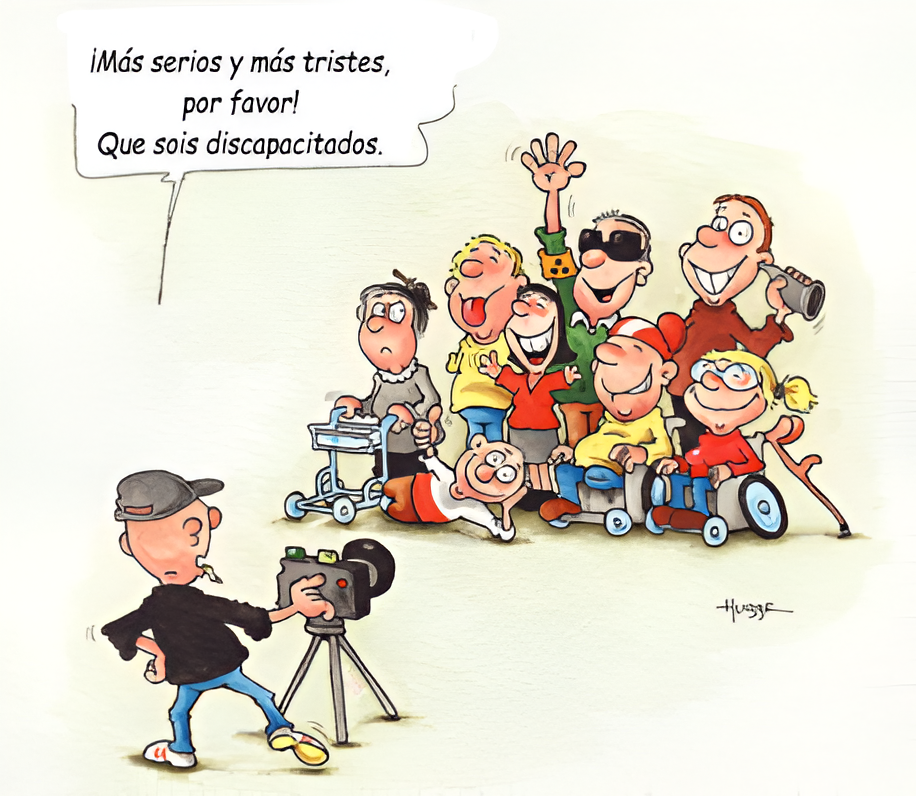Project details
DFG-Conference: Representaciones cómicas de la diversidad funcional: entre inclusión y exclusión

There are many jokes about disability. In the media, people with disabilities are increasingly appearing in comic contexts, e.g. in (sometimes award-winning) film comedies such as Colegas (Brazil 2013), Campeones (Spain 2018), Die Goldfische (Germany 2019) or The Peanut Butter falcon (USA 2019). Disability is also common in caricature. However, methodologically sound studies or even overarching theories on the research field of 'comedy and disability' have been almost completely lacking in international research to date.
However, questions about the potential of laughter and comedy and their ambivalence are particularly important in discussions about inclusion, because laughter can include and exclude. People laugh because of and despite their disability, about and with the people affected.
On the one hand, laughter contains a moment of distance and detachment, but at the same time it also refers to a social group and thus indicates belonging. However, there is no objective factor that determines when and under what conditions comedy turns into violence and cruelty, liberating distancing into stigmatisation and social exclusion.
The aim of the conference is to analyse the ambivalence of comic representations of disability in fictional texts, films and scenic representations as well as the ambivalence of reception. The aim is to precisely describe which type of comedy is used and which 'laughter communities' are created as a result. The following main topics are planned:
- Analysing comic representations of disability in specific case studies in different media and different cultural contexts;
- Analysing the function of the body/representations of the body as an intersection of the social and the symbolic;
- Formulation and processing of ethical and normative questions about 'good' or 'bad' laughter about disability;
- An attempt to draw a line between inclusion and exclusion through laughter.
The event was held entirely in Spanish.
| Principal Investigator(s) at the University | Prof. Dr. Susanne Hartwig (Lehrstuhl für Romanische Literaturen und Kulturen) |
|---|---|
| Project period | 13.07.2022 - 15.07.2022 |
| Source of funding |  DFG - Deutsche Forschungsgemeinschaft |

